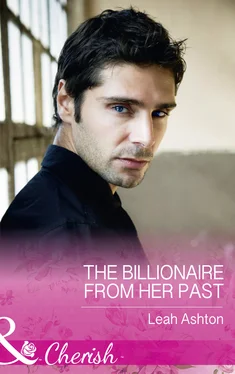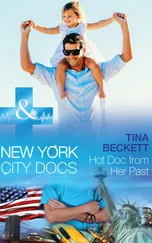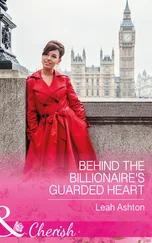He’d read somewhere—or heard, maybe, on a podcast or something—that grief hit you like a wave. At first the waves just kept on pounding. Pounding you down and down, with barely a breath of air before you were sucked back under again. But then, over time, the gaps between the waves would grow. They would still hit just as hard—and be just as shocking—but in between you could begin to breathe. To exist again.
Sometimes you even got better at handling the waves, at bracing yourself and swimming back up to the surface. Not every wave though. Some would always sneak up on you and drown you as brutally as the first.
Every memory of Steph...every reminder of his many mistakes...what he could have done...should have done... It wasn’t getting easier.
Seb had discovered that the waves didn’t stop coming. He had just got better at swimming.
Footsteps drew his attention back to his surroundings. He looked up to see Mila striding along the footpath, her gaze on the screen of her phone. Her eyes flicked upwards as she approached, and the moment her gaze locked on his it skittered away again.
It was just like yesterday: that same unexpected and suddenly closed expression. He had absolutely no idea why.
But then her gaze swung back, as if she was really looking at him now, and her long strides came to a halt in front of him.
‘I didn’t see you there,’ she said.
He had a feeling if she had she would have exited via the rear of her shop. The realisation frustrated him. Why was she keeping her distance?
But now she was studying him carefully, as if attempting to translate what the sum total of his face and posture actually meant.
He pushed away from the wall and rolled his shoulders back, uncomfortable with whatever Mila might have thought she’d seen.
‘Are you okay?’
He nodded sharply, not quite meeting her eyes. ‘Of course.’
‘You don’t look okay,’ she said—which shouldn’t have surprised him. Mila wasn’t one to accept anything at surface value.
She took a step closer, trying to catch his gaze.
He knew he was just being stupid now, but for some reason he just couldn’t quite look at her—the knife-edged echo of Steph’s remembered words was still yet to be washed out to sea.
She reached out, resting her fingers just above his wrist. Her hand was cool against his sun-warmed skin.
‘Last night,’ she said, as he focused on the deep red shade of her nail polish, ‘do you know what I did? I found that photobook Steph made after our trip to Bali when we were about twenty. Remember? Our first holiday without our parents. We thought we were so grown-up.’
He nodded. They’d gone with a group of his and Steph’s friends from uni. Mila had just dropped out of her umpteenth course, but that had been back when she and Steph had done everything together. There’d never been any question—of course Mila would go with them.
‘Do you remember that guy I met? From Melbourne?’ She laughed. ‘Oh, God. What a loser.’ She shook her head. ‘Anyway, last night I wanted to see Steph—see her happy—with you and...uh...me, of course.’
Her words had become a little faster, and he was finally able to drag his gaze to hers. She must be wearing boots with a heel, as she looked taller than he’d expected—actually, simply closer to him than he’d expected.
‘It made me smile,’ she said. ‘And cry.’
Her hand was still on his arm, but she’d shifted her fingers to grip harder—as if she was desperately holding on.
‘What I’m trying to say,’ she said, her big blue eyes earnest and unwavering, ‘is that I get it. These moments. Minutes. Hours.’
‘Days...’
But he stopped himself saying the rest: weeks, months... Because he’d realised it wasn’t true. Not now.
Mila realised it too—he could tell. They stood there on the street, staring at each other with a strange mix of sadness for the beautiful, smart, funny, flawed Stephanie they so missed and relief that their lives continued onwards.
‘Are you okay?’ Mila asked again.
He nodded. The ocean had stilled. The wave of grief and guilt and loss had receded.
She still gripped his arm. They both seemed to realise it at the same time. Her touch felt different now. No longer cool or simply comforting. Her fingers loosened, but didn’t fall away. She didn’t step back—but then neither did he.
Her gaze seemed to flicker slightly, darting about his face to land nowhere in particular.
When they’d been about fifteen, Mila had successfully dragged Steph into her Goth phase. Seb couldn’t remember what the actual point of it all had been, but he did remember a lot of depressing music and heavy eyeliner.
‘You have incredible eyes,’ he said, without thinking.
Those incredible eyes widened—and they were incredible...he’d always thought so—and Mila took an abrupt step back, snatched her hand away.
‘What?’
He instantly missed her touch—enough that it bothered him. Although he couldn’t have explained why.
‘I was thinking of all that eye make-up you used to wear towards the end of high school. I hated it. You look perfect just like this.’
Mila’s cheeks might have pinkened—it was hard to tell in the sunlight—but her eyes had definitely narrowed. ‘I didn’t ask for your approval of my make-up choices.’
He’d stuffed up. There it was—that shuttered, defensive expression.
‘That wasn’t what I meant. I—’
‘Look, I really have to go.’ She’d already taken a handful of steps along the footpath.
‘See you at tennis?’ he said. They’d organised it via text for the following evening.
Mila didn’t look back. ‘Yes,’ she said, sounding about as excited as if he’d reminded her of a dental appointment.
Sebastian tossed his empty coffee cup in the skip, then headed back to the building site. He might not need to be here daily to speak to the project manager, but he could find other ways to make himself useful—ideally in usefulness that involved swinging a sledgehammer.
CHAPTER FOUR
THE VERY LAST glimmers of sun were fading as Mila pulled into the Nedlands Tennis Club car park. A moment after she’d hooked her tennis bag over her shoulder floodlights came on, illuminating the navy blue hard courts and their border of forest-green.
The car park was nearly empty.An elderly-looking sedan with probationary ‘P’ plates most likely belonged to one of the teenage girls warming up very seriously for a doubles match, while the top-of-the-range blood-red sports utility had to belong to one of the two guys around Mila’s age who were laughing as they very casually lobbed a ball back and forth.
Judging by the fluorescent workwear tossed in the tray of the ute, Mila could almost guarantee those guys were wealthy FIFO workers: men—generally—who flew in to work at one of Western Australia’s isolated mines in the Pilbara for weeks at a time, living in ‘dongas’—basic, transportable single rooms—and then flying out for a week or more off, back home in Perth. It was a brutal, but extremely well-paid lifestyle—providing blue collar workers with incomes unheard of before the mining boom.
Mila could never have done it. She’d visited the Molyneux-owned mines many times in her youth, and while she could appreciate the ancient, spectacular beauty of the Pilbara, the complete isolation somehow got to her. Out there you were over one thousand five hundred kilometres from Perth, and not much closer to anything else.
Ivy loved it—she’d married her new husband there, after all. And April did, too, regularly ‘glamping’ with her husband in remote Outback locations and posting dreamy, impossibly perfect photos on social media. But Mila always felt that she must be missing some essential Molyneux genes. The mining gene, or the iron ore gene, or even the red dust and boab tree gene.
Читать дальше












